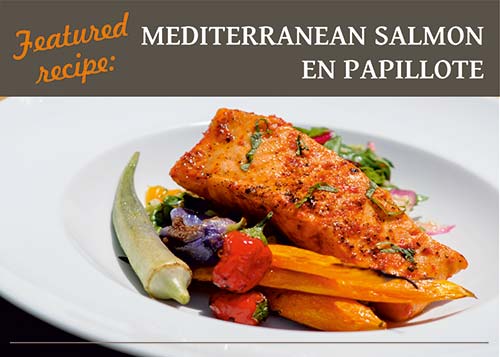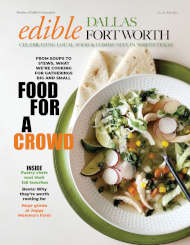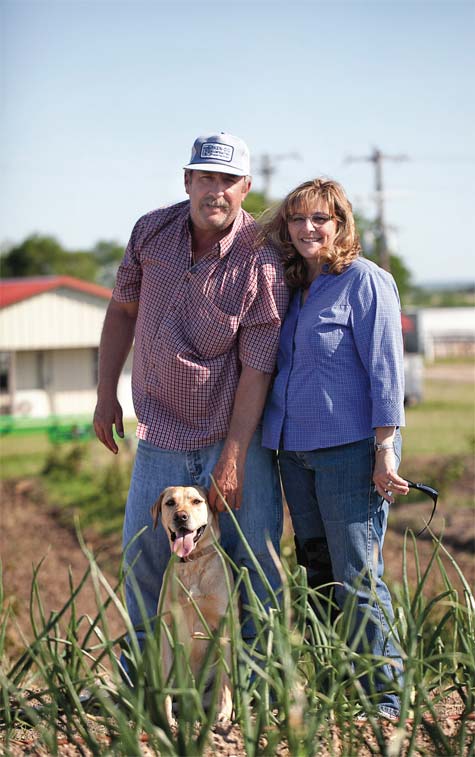 Ken & Laura Jo Halverson
Ken & Laura Jo Halverson
Photography by Kelly Yandell
When Ken and Laura Jo Halverson bought their farm in Waxahachie, Laura Jo thought her husband was just finishing up a landscaping project as he continued bringing in more and more peach trees. Finally, Ken casually informed his wife, “I think we are going to have an orchard.”
This initial planting of 200 trees has grown into a bustling 8,000- tree, chemical-free peach orchard boasting 35 varieties of freestone and clingstone peaches. What’s the difference? With clingstone varieties, the flesh of the peach truly “clings” to the pit, whereas a freestone peach separates freely. The flesh of peaches ranges from white to yellow and cling peaches are often used for canning purposes. But fresh from the tree, Texas peaches are something to behold, a true delicacy.
“You need to lean forward a little bit before you bite into it,” Laura Jo tells visitors. This warning is often met with a puzzled look, until the lucky guest smiles as the peach bursts with sweet juices. “They taste like a peach should taste,” she says. “White flesh peaches are just like eating candy. I absolutely love them.”
Ken, who works full-time as a general contractor, grew up in Grand Junction, Colorado, an area known for its succulent peaches. The memories were his inspiration for starting Larken Farms. (The name’s a hybrid of Laura Jo and Ken—Lar-Ken.) “There is nothing like grabbing a peach right off the tree and having [the juices] run down your shirt,” says Ken. “There is nothing like making peach ice cream.”
As their peach production improved with every passing year, the couple continued to add trees. “Every time we hit the goal,” says Ken, “it goes up a little more.” And as they added trees, they worked to diversify their varieties, not only to add interest, but also to ensure that they would have both early-ripening and late-ripening varieties. The plan was to enable them to harvest peaches from April into July.
Those diversification efforts proved to be a fortunate strategy when this spring’s late freezes killed most of their early-ripening varieties. For many Texas peach farmers, the weather decimated their entire crop. Peach trees grow by “chill hours.” Varieties are signaled to grow, or “break dormancy” after they have experienced a certain number of hours at a specified low temperature. If a tree begins to produce fruit early in spring, for instance, it has a 200-300 chill hour growth pattern, and a late freeze can kill the fruit. If an entire orchard has trees with a 200-300 chill hour growth pattern, a farmer can lose the whole year’s production with a late freeze. Larken Farms has not only early blooming trees, but also trees that range up to an 800 chill hour growth pattern. While Ken and Laura Jo will not have their favorite white flesh peaches this year, they feel fortunate that their other varieties are coming along nicely, and will be ready for harvest in late June.
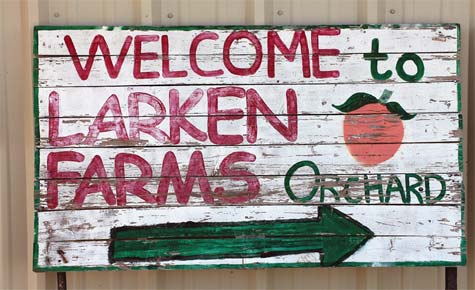
The Halversons have a strict policy of not importing peaches from other regions to cover their losses. They want their customers to feel confident that the peaches sold by Larken Farms are Texas grown. They have cultivated a following of discriminating peach lovers who want only the best, chemical-free produce. While they haven’t sought formal organic certification for their farm, they grow their peaches with organic methods and avoid chemical pesticides. “Because everything we do is without chemicals, we don’t bring anything else in,” says Ken. “When we are out, we are done.”
They have found that people seek them out because of their commitment to the organic approach. “They are thrilled by it,” exclaims Laura Jo. One such discriminating peach buyer is Kathy Neumuller of JJ&B Jams who uses Larken Farms peaches, as well as blackberries, for some of her jams and jellies. “Finding fruit without chemicals is important to her,” notes Laura Jo.
Other than the major risks of spring temperature drops, Ken notes that one of their big challenges comes from the local wildlife that visits the orchard to gorge. Fat raccoons will perch on low branches and eat their fill, often breaking off branches in the process. And coyotes will reach into the tree, standing on their hind legs to reach juicy peaches and break off branches, as well.
Though peaches are the crown jewels of the farm, Ken and Laura Jo have expanded their lush oasis to include several seasonal vegetable gardens. They are now up to four plots boasting cauliflower, cabbage, radishes, broccoli, tomatoes, squash, onions and zucchini.
They also have apricot, plum and pear trees growing along with the peaches, as well as honeybees that have their choice of a multitude of blossoms.
Laura Jo thinks of it as her “retirement project” should she ever actually retire from her full time work for Oncor. But, she and Ken already work non-stop welcoming guests to their farm as well as bringing their fruit and produce to several farmers markets and CSAs. The farm is open during the season for pick-your-own visits, and they have a farm stand on site.
“Initially, I had mentioned having a garden by the fruit barn,” says Laura Jo. She wanted a space where children “could see where a potato or an onion came from.” But when the adults were having as much fun as the children “we just kind of kept growing it, and each year, we add [more].”
Go to www.larkenfarms.com for location and hours of operation.
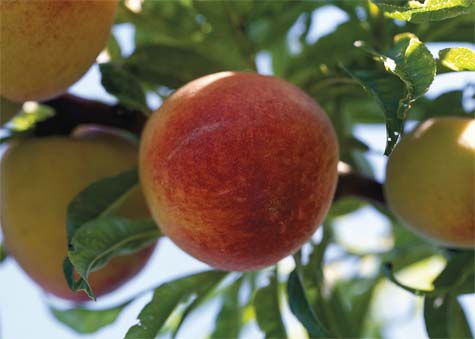
KELLY YANDELL is a writer and photographer based in Dallas. She has contributed to Edible Dallas & Fort Worth since 2011. Her website (themeaningofpie.com) celebrates practical dishes and comfort foods, while her photography portfolio can be found at kellyyandell.com. Kelly is an attorney and is the vice president of the Advisory Board of Foodways Texas, an organization founded by scholars, chefs, journalists, restaurateurs, farmers, ranchers, and other citizens of the state of Texas who have made it their mission to preserve, promote and celebrate the diverse food cultures of Texas.


